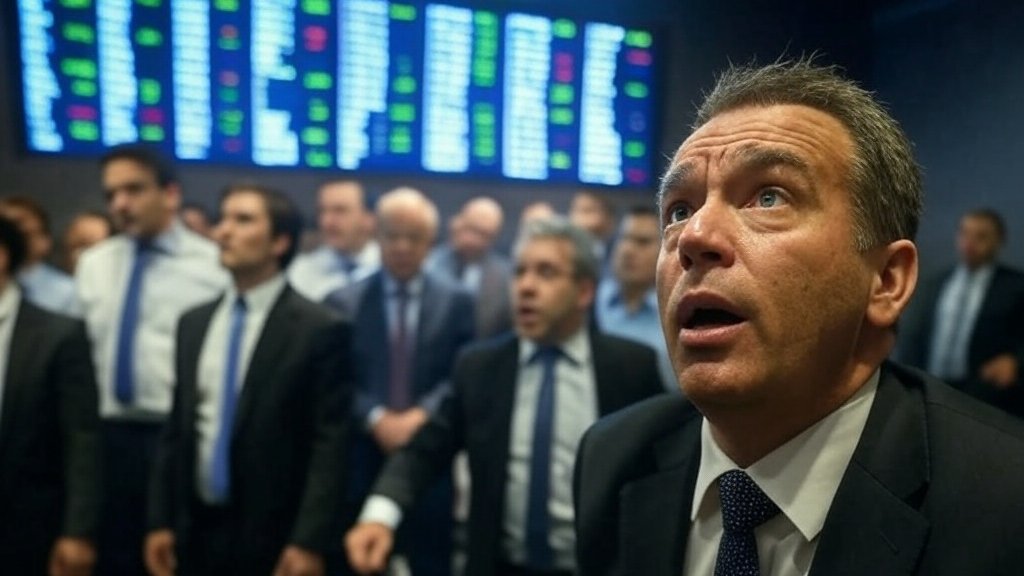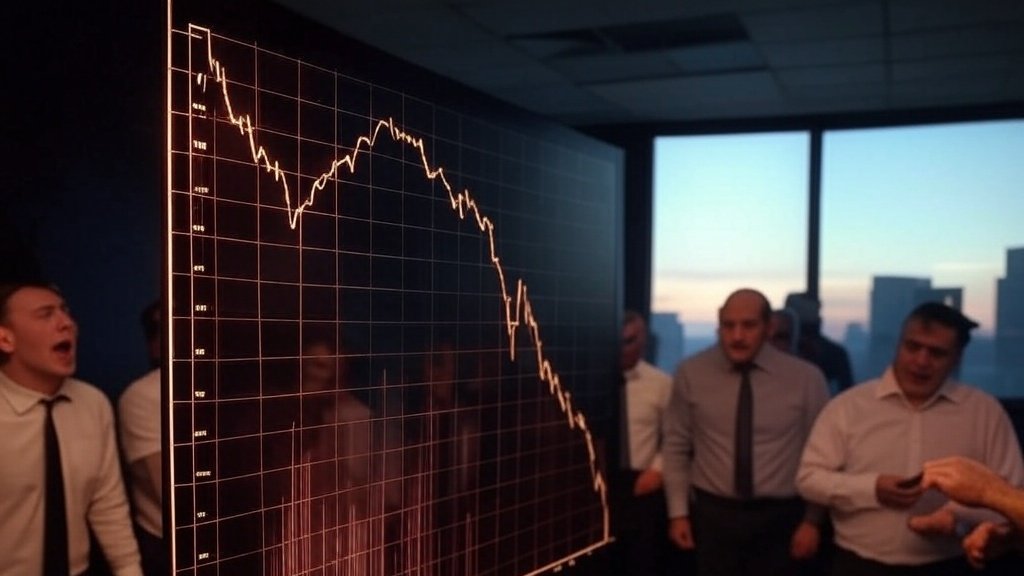
In recent days, something big has been happening around the world. Stock market crash in countries like the United States, India, Japan, Taiwan, China. Investors are panicking, companies are losing money, and governments are worried. But why is this happening? It all started with one decision made by former U.S. President Donald Trump he added extra taxes (called tariffs) on goods coming from other countries.
Let’s break this down in very simple words so you can understand what’s going on and how it may affect your life too.

What is a Stock Market Crash?
A stock market crash happens when many investors begin selling their shares at the same time. This sudden panic leads to prices dropping quickly. The more people sell, the lower the value of those shares goes. It’s like a chain reaction one person sells, then others get scared and sell too. In a matter of hours or days billions of dollars can be lost.
For businesses, this is bad news. When their value drops it becomes harder for them to grow, get loans or pay employees. For people who invest in stocks, it can mean losing their savings overnight.
What Did Donald Trump Do?
Donald Trump introduced new tariffs extra taxes on goods imported from countries like China, Japan, and more. He believed this would protect American businesses and encourage people in the U.S. to buy products made locally. According to him, foreign companies were taking advantage of the U.S. market, and it was time to change the rules.
However, other countries didn’t stay quiet. They reacted by placing their own tariffs on American goods. So now, products going in and out of the U.S. became more expensive on both sides. This kind of situation is called a trade war an economic fight between nations.
How Did Other Countries Respond?
This trade war didn’t just stay between the U.S. and one or two countries. It started affecting economies around the world. Here’s what happened in a few major countries:
- Japan: The Japanese stock market (Nikkei) dropped by around 8% in just one day. Investors quickly sold off their shares out of fear, causing a sharp fall.
- Taiwan: Taiwan’s stock exchange saw more than a 10% drop. The crash was so intense that authorities had to temporarily stop trading to prevent more chaos.
- India: The Sensex and Nifty India’s top stock indexes, went down by more than 5%. Companies began worrying about reduced global trade and slower economic growth.
- Hong Kong and China: Both regions saw their stock markets fall. The fear of a long-term trade war made people uncertain about the future.
Why Are Stock Markets Falling?
Markets are crashing mostly due to fear. Investors don’t like uncertainty. When powerful countries fight over money and trade, it creates a lot of confusion. People worry that companies will stop earning profits, lose customers or be forced to pay higher costs.
Also, tariffs make products more expensive. So if a phone or a TV is imported with a new tax, buyers may stop purchasing it. This leads to fewer sales and companies lose money. Eventually, they might have to lay off workers or cut back on production.
All of this affects the overall economy. When companies shrink, jobs disappear and people spend less money. That’s why stock markets react so strongly.
What Are Experts Saying?
Economists and financial experts believe this could lead to a global recession. A recession means the economy slows down, unemployment rises and everyday prices increase. Some experts are comparing this situation to “Black Monday” in 1987 one of the worst stock market crashes in history.
They’re warning that if this trade war continues, more countries could be pulled into the crisis. It may take a long time for markets and businesses to recover.
Are Countries Trying to Fix It?
Yes, there is still hope. Over 50 countries have started discussing solutions with the U.S. Some, like Taiwan, have even offered to trade without extra taxes. Most countries don’t want this conflict to continue. They want peaceful trade and economic growth.
The idea is to bring all parties to the table for open discussions. If they find common ground, the markets may begin to recover soon.
How Does This Affect You?
Even if you’ve never invested in the stock market, this situation can still impact your daily life. Here’s how:
- Prices of goods may go up (especially imported items like electronics, clothing and food)
- Jobs might become harder to find if companies stop hiring
- Salary cuts or job losses could happen if businesses struggle
- Living costs could increase if inflation rises
So yes, even an international trade war can affect your local life.
What Might Happen Next?
No one knows for sure. Things could get worse if the trade war continues, or they could improve quickly if leaders choose to cooperate. The world is watching closely and hoping for smart decisions.
What’s important now is that world leaders put aside pride and think about people’s futures jobs, savings, businesses and livelihoods are at stake.
Summary:
- U.S. started a trade war by adding tariffs on foreign goods.
- Countries like India, Japan, and Taiwan are facing stock market crashes.
- Investors are scared, selling shares fast.
- Experts warn of a global recession.
- Over 50 countries are working to solve the issue.
- You may feel the impact through rising prices and job concerns.
Final Thoughts
The global economy is like a web when one part shakes, the whole system feels it. Right now, that web is shaking hard. But with smart decisions, calm talks, and teamwork among nations, things can improve. Let’s stay hopeful and trust that leaders around the world will take the right steps to protect the global economy and the people who rely on it.





